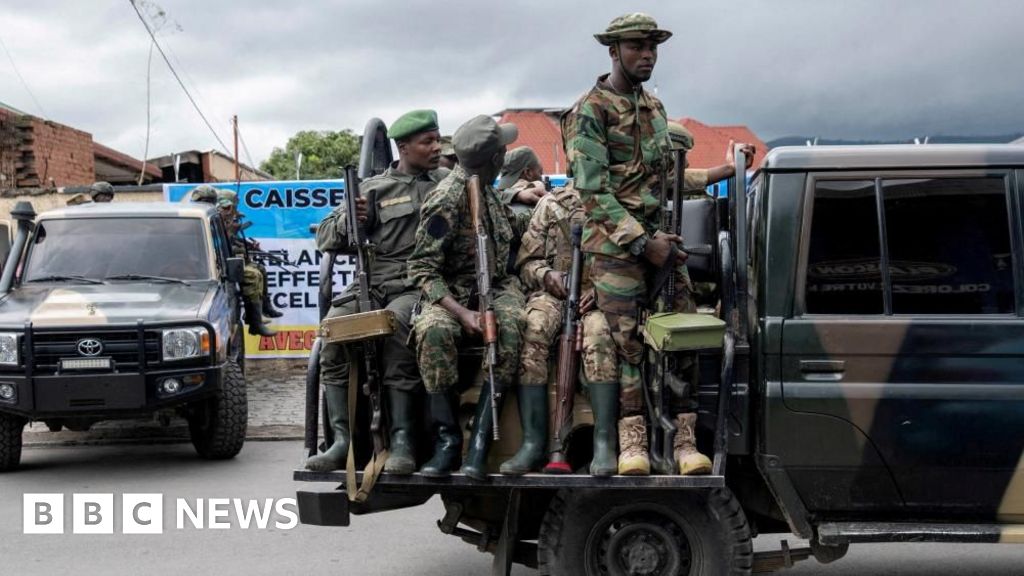Hope for peace as DR Congo and M23 rebels sign deal in Qatar

DR Congo and M23 Rebels Sign Ceasefire Deal in Qatar, But Challenges Remain
The Democratic Republic of Congo (DRC) and the M23 rebel group have signed a ceasefire agreement in Doha, Qatar, raising tentative hopes for an end to the escalating conflict in the eastern DRC. The "Declaration of Principles," signed on Saturday, commits both sides to ceasing attacks, halting "hate propaganda," and refraining from attempts to seize territory by force. The agreement, seen by the BBC, is intended to serve as a roadmap towards a lasting peace settlement, with implementation slated for July 29 and a final peace deal expected by August 18.
This accord follows a US-brokered deal last month between the DRC and Rwanda, which has consistently denied allegations of backing the M23. However, the path to sustained peace remains fraught with challenges, given a history of failed agreements and deep-seated mistrust.
Hopes and Hurdles: Key Aspects of the Agreement
The declaration outlines several key commitments, including:
An immediate cessation of hostilities. A commitment to reinstating state authority in eastern DRC. Adherence to the US-brokered agreement between the DRC and Rwanda.
DR Congo's spokesperson, Patrick Muyaya, emphasized that the deal incorporates the government's "red line" – the "non-negotiable withdrawal" of M23 from occupied areas. However, M23 negotiator Benjamin Mbonimpa contradicted this claim in a video posted on X, stating that the deal doesn't explicitly mandate a pull-out. This discrepancy highlights the complexities and potential for future disagreements in implementing the agreement.
A History of Conflict and Failed Peace Deals
The current conflict is rooted in decades of instability in eastern DRC, a region rich in mineral resources but plagued by armed groups vying for control. The M23, primarily composed of Congolese Tutsis, emerged in 2012 from a previous failed peace deal signed in 2009. The group claims to be fighting for the rights of Congolese Tutsis, alleging discrimination and marginalization by the government.
The recent escalation of violence has resulted in significant human suffering. The UN estimates that thousands have been killed and hundreds of thousands displaced. The M23 disputes these figures, claiming fewer than 1,000 fatalities. The humanitarian crisis has further strained already limited resources and infrastructure in the region.
Expert Analysis: A Fragile Opportunity
Dr. Stephanie Wolters, a Senior Research Fellow at the South African Institute of International Affairs (SAIIA), cautions against premature optimism. "While the signing of the Declaration of Principles is a welcome step, it's crucial to remember that we've been here before," she says. "The success of this agreement hinges on the willingness of all parties, including Rwanda, to genuinely commit to its implementation. Verification mechanisms and robust monitoring will be essential to prevent a relapse into violence."
According to political analyst, Mr. Jean-Claude Mbaya, based in Kinshasa, the inclusivity of the process is also paramount. "Past peace deals have often failed because they didn't adequately address the grievances of all communities affected by the conflict. This agreement needs to be accompanied by a broader dialogue involving civil society, local leaders, and representatives of various ethnic groups to ensure a sustainable solution," he argues.
Regional Implications and International Involvement
The conflict in eastern DRC has significant regional implications, particularly for relations between the DRC and Rwanda. The DRC has repeatedly accused Rwanda of supporting the M23, a charge Rwanda denies. The US, the African Union, and other international actors have been actively involved in mediation efforts, seeking to de-escalate tensions and promote dialogue.
The African Union Commission has hailed the declaration as a "milestone" in lasting peace efforts and security in the region. Qatar, which hosted the talks, has indicated that negotiations are set to continue. The international community's continued engagement will be vital to support the implementation of the agreement and address the underlying causes of the conflict.
Looking Ahead: Challenges and Prospects
Despite the signing of the ceasefire deal, significant challenges remain. These include verifying the withdrawal of M23 from occupied areas, addressing the root causes of the conflict, and ensuring accountability for human rights abuses. The success of the agreement will depend on the commitment of all parties to prioritize peace and stability over narrow political or economic interests.
The people of eastern DRC, who have endured years of violence and displacement, desperately need a lasting peace. This agreement offers a glimmer of hope, but its ultimate success will require sustained effort, political will, and a genuine commitment to reconciliation.
Originally sourced from: BBC News Africa
